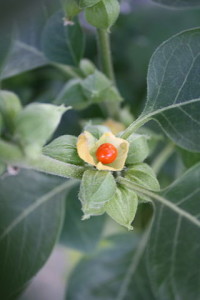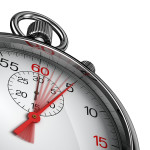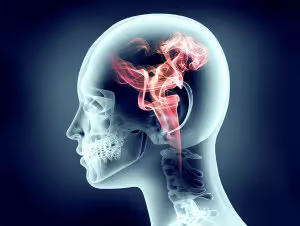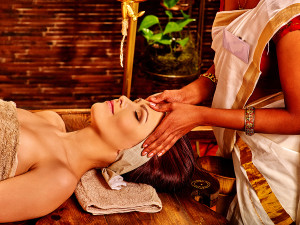Table of Contents
Ashwagandha (Withania somnifera) is one of the most powerful herbs powerful Ayurvedic herbs in healing. One of the main benefits of Ashwagandha is its remarkable stress-relieving properties. And stands shoulder to shoulder with some of the most potent drugs used to treat depression and anxiety.
In Sanskrit, Ashwagandha means “smell of horse”. Meaning this herb imparts the strength and vigor of a stallion.
Ashwagandha is native to India, Pakistan and Sri Lanka. And is now being grown in other regions including the United States.
Ashwagandha extracts helps protect your central nervous system and maintain brain health. It is a promising alternative for aging and neurodegenerative pathologies treatment including Alzheimer’s and Parkinson’s.
As an antioxidant, Ashwagandha seeks out and destroys free radicals. Free radicals have been implicated in many age-related diseases. There’s even some emerging evidence that Ashwagandha offers anti-cancer benefits
for brain tumors. Even though so much is out there stating that the active principles and underlying molecular mechanism (s) remain largely unknown for this ancient Ayurvedic herb.
Get ready to explore how Ashwagandha benefits your brain because we will go as deep as possible.
Ashwagandha helps:
- Reduce Stress: Ashwagandha helps reduce anxiety and depression. It reduces the stress hormone cortisol, lowers blood sugar levels, and improves lipid profiles.[i]
- Neuronal Regeneration: Ashwagandha helps regenerate axons and dendrites of brain nerve cells. And helps reconstruct synapses, the junctions where nerve cells communicate with other cells.[ii] Boosting memory and restoring neural networks affected by neurodegenerative disease.
- Neurotransmitters: Ashwagandha extract inhibits acetylcholinesterase. The enzyme responsible for breaking down the key neurotransmitter acetylcholine.[iii] Boosting memory, learning and cognition.
Overview

Ashwagandha (Withania somnifera) is one of the most powerful herbs in Ayurvedic healing. This Indian traditional home medicine as an herbal remedy has remarkable anti-depressant qualities. And has been shown to be as good as many prescription pharmaceuticals in treating depression and anxiety.
Ashwagandha is often referred to as “Indian ginseng” because of its rejuvenating properties. But botanically, Ashwagandha and ginseng are unrelated.
Native to India, Pakistan and Sri Lanka. Ashwagandha is now being grown in other regions including the United States.
Ashwagandha is in the same family as the tomato. It’s a small woody shrub with oval leaves, and five-petal yellow flowers. The fruit is red and the size of a raisin. The plant is also known as the “Winter Cherry”.
Ashwagandha is known as an adaptogen. Which means it helps your body adapt to stress, both mental and physical.
The Indian Materia Medica lists Ashwagandha for:
- general debility
- impotence
- general aphrodisiac purposes
- brain fatigue
- low sperm count
- nervous exhaustion
- where general vigor must be restored.
Ashwagandha extract has been shown to be an effective antioxidant in the brain. Clearing the cellular waste implicated in Alzheimer’s Disease.[iv]
Is also boosts memory and cognition. By reducing stress and increasing acetylcholine. And regeneration of nerve networks in the brain.
How does Ashwagandha Work in the Brain?
Ashwagandha boosts brain health and function in several ways. But two in particular stand out.
- Ashwagandha enhances GABA receptors and regulates serotonin in the brain. It appears to work on neuron receptors, enabling GABA to connect easier. This inhibits the signals present under a stress response in the brain. Anxiety is reduced.
A study was conducted at The Canadian College of Naturopathic Medicine with 75 volunteers with moderate to severe anxiety. Ashwagandha produced a significant decrease in anxiety levels over the control group.[v]
- Ashwagandha improves cognitive and psychomotor performance in a healthy brain.
Researchers at Nizam’s Institute of Medical Sciences in Hyderabad, India worked with 20 healthy male volunteers. In this double-blind, placebo-controlled trial participants were given 250 mg capsules of standardized Ashwagandha extract for 14 days.
Significant improvements in reaction time were reported at the end of the trial. The study suggests that Ashwagandha extract improves cognitive and psychomotor (physical reaction) performance even when you’re in the best of health.[vi]
How things go bad
Chronic stress and cortisol can damage your brain. Neuroscientists at the University of California, Berkeley found that chronic stress triggers long-term changes in brain structure and function.[vii]
Chronic stress changes neural networks. Cortisol creates a domino effect that hard-wires pathways between the hippocampus and amygdala. (The amygdala (lizard brain) is the area responsible for your fight-or-flight response).
This hard-wiring caused by stress is not the way the brain was designed. But chronic, ongoing stress tricks the brain into rebuilding circuits and hunkering down for the long haul.
This re-wiring appears to be permanent. Unless you intervene with something like Ashwagandha.
 Chronic stress seems to ‘flip a switch’ in stem cells in the brain. And turns them into a type of cell that prevents connections to the prefrontal cortex. Preventing improved learning and memory.
Chronic stress seems to ‘flip a switch’ in stem cells in the brain. And turns them into a type of cell that prevents connections to the prefrontal cortex. Preventing improved learning and memory.
And laying down the scaffolding linked to anxiety, depression and PTSD (Post Traumatic Stress Disorder).
↓ Chronic stress coats neurons in myelin
↓ Chronic stress reduces the number of neurons
↓ Gray matter decreases and white matter increases.
Under conditions of chronic stress and excess cortisol, your brain’s neurons are coated (or sheathed) in myelin.
Under healthy conditions this “sheathing” is a protective measure. But this excessive sheathing is likely an evolutionary measure made to reinforce the connection between the hippocampus and amygdala. Improving the fight-or-flight response during extended periods of threat or attack.
In the modern world, chronic stress hijacks your fight-or-flight response system. It backfires in daily life in which you are not in physical danger.
Ashwagandha benefits
Ashwagandha undoes damage to the brain caused by chronic stress. And helps keep it healthy.
Ashwagandha has such beneficial activities for cognitive function. Glycowithanolides, one of the many compounds found in Ashwagandha, reduces cortisol. And overall energy levels are enhanced through optimizing mitochondrial function.
It also has GABA-mimicking effects in the brain. Comparable to the effects of prescription benzodiazepines like lorazepam (Ativan).
Ashwagandha can also help prevent and repair damage caused by Alzheimer’s, Parkinson’s and Huntington’s disease. Through its antioxidant and inflammation-reducing mechanisms.
Ashwagandha even provides protection and regeneration of neurons during opiate and heroin withdrawal. And eases withdrawal symptoms.
 In Ayurvedic medicine, Rasayana herbs are used to promote a youthful state of physical and mental health. The ancients considered Medhya Rasayana herbs to be working with higher brain function. These are mind-rejuvenating herbs.
In Ayurvedic medicine, Rasayana herbs are used to promote a youthful state of physical and mental health. The ancients considered Medhya Rasayana herbs to be working with higher brain function. These are mind-rejuvenating herbs.
Of the 8 or 9 most cherished herbal remedies, Ashwagandha is the highest or most prominent of Ayurvedic Rasayana herbs. Acting as an adaptogen, rejuvenating the nervous system, and boosting the body’s resilience to stress.
How does Ashwagandha feel?
Ashwagandha users report:
-
- Ashwagandha as a stress-reliever. If you are experiencing severe fatigue and brain fog, it’s likely stress. Chronic or severe stress can disguise itself in many ways. Including feeling abnormally fatigued. You find that you are not sleeping well. Or don’t feel rested and refreshed when waking up in the morning. Even after taking a sleeping pill. Many report a rapid change in energy and motivation as soon as they take Ashwagandha. Others won’t feel the effects for a couple of weeks before relief sets in. You’ll know Ashwagandha is working when you wake up in the morning feeling refreshed. And eagerly looking forward to starting your day.
-
- Ashwagandha as an anti-anxiety aid. As an anti-anxiety aid users say they feel their self-confidence has been restored. Your speech will feel more fluid and easier, especially in public settings. No more panic attacks.
- Ashwagandha as an antidepressant. Depression, even if it’s not professionally diagnosed, can destroy your life. Ashwagandha users say it is the best antidepressant they’ve ever used. Their energy is restored, motivation is back, and they’re able to focus.
Ashwagandha works on many levels in the brain. Cortisol levels are stabilized. And the damage to your brain begins to correct itself. Acetylcholine levels rise so you’re able to think clearly again.
Neurons get repaired, and cognition and memory return to levels you experienced when you were younger. And GABA receptors are re-activated producing a calming effect.
Ashwagandha Clinical Research
Researchers at Asha Hospital in Hyderabad, India did a double-blind, randomized, placebo-controlled trial with 64 subjects who had a history of chronic stress. The study group took a 300 mg capsule of full-spectrum Ashwagandha root twice a day for 60 days.
Follow up calls to participants were done on the 15th, 30th, 45th and 60th day of the trial. Researchers reported serum cortisol levels were substantially reduced.
 The report concluded “that a high-concentration full-spectrum Ashwagandha root extract safely and effectively improves an individual’s resistance towards stress and thereby improves self-assessed quality of life”.[viii]
The report concluded “that a high-concentration full-spectrum Ashwagandha root extract safely and effectively improves an individual’s resistance towards stress and thereby improves self-assessed quality of life”.[viii]
Ashwagandha as a nootropic
One study done in a lab in India subjected laboratory mice to electroconvulsive shock treatment. Or were given scopolamine to induce amnesia (memory loss).
Both sets of mice were given Ashwagandha extract daily after the shock or chemical treatments. Ashwagandha extract restored their memory and motor skills.[ix]
Ashwagandha as an antidepressant
Scientists did a study on rats to compare Ashwagandha with the popular benzodiazepine antidepressant lorazepam (Ativan). And the tricyclic antidepressant imipramine (Tofranil).
Researchers gave the rats either Ashwagandha, lorazepam or imipramine. 30 minutes later they put the rats through a maze, had them interacting socially, and even forced them to swim.
They concluded that as a mood stabilizer, Ashwagandha worked on depression and anxiety as well as either of the two antidepressants.[x]
Ashwagandha Dosage
Ayurvedic Pharmacopoeia of India recommends 3 – 6 grams daily of standard ground Ashwagandha powder.
- For arthritis: 250 – 500 mg of extract (4-5% withanolides)
- For antioxidant protection: 100 – 200 mg of extract (4-5% withanolides)
- For immunity: 100 – 200 mg of extract (4-5% withanolides)
- For relaxation: 250 – 500 mg of extract (4-5% withanolides)
- For stress: 250 – 500 mg of extract (4-5% withanolides)
- For sexual performance: 250 – 500 mg of extract (4-5% withanolides)
For higher Ashwagandha doses like 500 mg, take 250 mg in the morning and another 250 mg early afternoon. And note the distinction between standard ground Ashwagandha powder and an extract. The extract is much more concentrated.
Ashwagandha Side Effects
Note: Ashwagandha stimulates your thyroid hormones. So if you are hypothyroid, use Ashwagandha with caution. And check with your endocrinologist to be safe.
Ashwagandha is non-toxic at moderate doses. If you are pregnant do not use Ashwagandha as it could cause a miscarriage. This herb is an adaptogen with powerful hormonal effects.
Ashwagandha can enhance the effects of sedatives, antidepressant and anti-anxiety medications, including St. John’s wort.
It can also interact and possibly amplify the effects of immunosuppressants, blood pressure medication, and drugs used to control blood glucose levels.
Ashwagandha can boost the effects of alcohol. And do not use Ashwagandha if you have bleeding issues, or before surgery.
Other possible side effects include diarrhea, nausea, abdominal pain, drowsiness and slowed pulse. Ashwafandha anhedonia may also occur when you feel flat or emotionally numb.
And you should not use Ashwagandha if you are dealing with kidney or liver disease. A study published in 2023 and which was conducted in India found those with preexisting liver disease and who used Ashwagandha from only 2 weeks to 1 1/2 years suffered liver injury. 3 suffered liver failure and died.
Where to buy Ashwagandha
Ashwagandha is available as a powder, capsules, tincture and tea. The root and berry of the plant are used. The ground root of the herb is used as the base of an Ashwagandha supplement.
Active ingredients of Ashwagandha include alkaloids, saponins, and withanolides. Look for the percentage of active ingredients listed on the bottle or package. Typically, you’ll see something like “standardized to 4-5% of withanolides”.
NOTE: This post contains affiliate links, and I will be compensated if you make a purchase after clicking on my links.
A good choice of Ashwagandha extract is KSM66® which is a full spectrum root extract made by Ixoreal, a division of the Baldwa group of companies in India. This extract contains 5% withanolides and less than 0.1 Withaferin A (which is toxic).
You can buy it here: Click for Pure Nootropics – Ashwagandha (KSM66®)
Nootropics Expert Recommendation
Ashwagandha Extract 250 – 500 mg per day
 I recommend using Ashwagandha as a nootropic supplement.
I recommend using Ashwagandha as a nootropic supplement.
Your body does not make Ashwagandha on its own. So to get its benefits you must take it as a supplement.
Ashwagandha is especially helpful for those suffering from anxiety and stress. Studies show it helps stop and reverse the devastating effects of stress on your brain, and body. This nootropic helps repair the damage to neurons and synapses caused by chronic stress.
Ashwagandha is a powerful adaptogen. Which means it helps increase the effect of certain hormones when activity is low. And will block excess stimulation when activity is too high.
The benefits of Ashwagandha as an adaptogen helps balance cortisol in the body caused by chronic stress. Chronically elevated cortisol levels suppress immunity, create fat deposits on the belly, face and neck, reduces libido, causes bone loss, causes insulin resistance, and brain fog.
Balancing cortisol levels with Ashwagandha improves your sleep quality, immunity, stress response, organ function, reduces fatigue, and brain fog.
Ashwagandha is also helpful for those suffering from anxiety and panic disorders. A study published in Phytomedicine showed the calming effect of this herb was equal to the drug Ativan (lorazepam). Without the side effects.
You can safely take up to 750 mg of Ashwagandha extract daily if needed. Most get all the benefit they need with 500 mg. Dosed 250 mg in the morning, and another 250 mg early afternoon.
You can buy it here: Click for Pure Nootropics – Ashwagandha (KSM66®)









Join The Discussion - 500 comments
Michael
October 25, 2018
I’ve taken Bacopa for a while and just started taking this. Since they are both adaptogens, do you usually only include one or the other in your stack? or would it be beneficial to have both?
Also, unrelated to Ashwagandha, but related to the point above. I’m loving nootropics so far, it has changed my life! But, its getting rather expensive as I introduce more and more into my stack, refills too. There are so many great nootropics, each explained on this site and each amazing in their own way, so how do you design a stack that covers all the bases without overkill?
I love this site David and so much hard work has clearly gone into it, but is there any way you could give us a template for stack design? This is how I imagine it… nootropics in categories of what they mainly do for the body, then a note in each category “Pick 1” “Pick 2” and more unique nootropics “Optional” – “As Needed” – B-Complex – “Required/Supportive/Typical “Core Item of Stack” ect.” That way you kind of know that its redundant to take too many in a single category. Maybe you find out you’re missing something from another category that’s important. Ect. Maybe Tryptophan doesn’t work well for you, so you take Rhodiola rosea instead (similar category?)
I’m getting confused over what I should always have in my stack and what can be cut out due to redundancy sake. Everything is good on this site in one way or another, but its too much to take everything that’s “good”. That would be a stack of nearly all of them!
David Tomen
October 25, 2018
Michael, yes you can use both Ashwagandha and Bacopa together because even though both are adaptogens they provide very different benefits.
It can get expensive as you gain more experience and add more nootropics to your stack. I spent several hundred dollars per month on my stack. If I did this blindly it would be difficult to justify. But I know exactly what each does and how this combo has changed my life.
But as I gain more experience I’ve found that I can reduce my spend considerably by getting some pre-made stacks. For example, I was stacking ALCAR, Lipoic Acid, CoQ10, PQQ and BioPerine as separate supplements. That alone is a costly stack. Now I can get the same benefit by using Performance Lab Energy which contains all of them.
I love your idea about a template for nootropic stack design and have given it a lot of thought over the last few months. It’s a real challenge to come up with something that would be easy to follow and use. Leave that one with me and I’ll do my best to come up with something t post here on Nootropics Expert.
The last two chapters in my book Head First does have suggested stacks for things like depression, anxiety, ADHD, etc.
Michael
October 25, 2018
Thanks David! As always your comments are extremely helpful! Eventually I am going to add up my monthly cost and calculate what I could be saving by going with Performance Lab. I’ve already looked into it quite a bit. It’s very high quality patented stuff that is designed to cross the blood-brain barrier right out of the gate, so its worth the cost. Speciality things like Magtein that are costly on their own.
A stack design template/”flow chart” would be amazing, but I can imagine the work and detail it would involve (so no pressure!), especially with the subjectivity that nootropics typically demonstrate…it makes it hard to note all the exceptions to the generally-accepted/regarded rules for each part of a stack.
I think it would clear up a lot of questions though, and really showcase what a well-researched person knows v.s. a novice. The detail on this site about each nootropic individually is tremendous. The flow chart/template would tie it all together. It would give people an overview, a birds eye map, of all the information. ..Designing a stack just as if an expert is sitting down with you and telling you about the nootropic communities’ “ideas/found synergies/strategies” for making a stack. I’d pay money for that!
I’m at the point of I feel great with the stack I’m taking, but have no clue which part of is responsible for me feeling this way, or which parts are contributing less or more. I did not introduce one pill at a time with extensive testing periods for each individually — some take a long time to kick-in/show benefits. I doubt many people test each one like this. If I want to continue tweaking my stack, I don’t know how. If its all a placebo effect, so be it! 😛
Thanks for the reply David!
David Tomen
October 25, 2018
Michael, the part where you said “I don’t know how”… Give yourself some credit here because you know more about using various nootropics than many other people who visit Nootropics Expert. Experimenting is key as you know. When you run out of a few nootropics until your next paycheck, let me know about that “placebo effect”.:-)
I will put more effort into your suggestion of developing nootropic stack templates for various goals. It’s important and would help a lot of people. So stay tuned …
michael arevalo
October 11, 2018
Hi David,
Thanks for all the good info.
Supplement facts for the Ashawagandha product I purchased state:
Ashwagandha Root 920mg
(Withania sonnifera)
from 230 mg of 4:1 extract.
Is this a good Supplement form or should I be looking for a different extract concentration?
Thanks.
David Tomen
October 12, 2018
Michael, the only issue with this Ashwagandha supplement is the label is not disclosing what the extract is. The manufacturer should say something like “standardized to 4-5% of withanolides”.
But if the reviews are good and the supplement works for you then continue using it.
Allie
October 10, 2018
Please help!
Ashwagandha made me feel so good, increased my energy, gave me back my creativity…. but also…. made me grow facial hair and a light dusting of body hair on my inner thighs! NOOOOOOO! (I’m female). Is there any other herb like this that does not have this kind of effect? It made me feel so good I am almost resigning myself to a twice daily shave :'(
David Tomen
October 10, 2018
Allie, Ashwagandha does not have that effect. I suggest you find a purer source of Ashwagandha from a reputable manufacturer and vendor.
Lumi
August 20, 2019
David,
First and most, thank you very much for finding the time to join Ashley James during the Learn True Health Podcast. And you did it more than once.
You are an amazing individual with a genuine and rare desire to help people manage their health.
The amount of studying and hours you put into writing your book is remarkable. My sincere appreciation to you and your supportive wife.
Is there a blog or a newsletter (that I probably missed)where you would have a list of US preferred suppliers/manufacturers for the supplements and or herbal remedies you studied and recommend?
I’ve purchased the “Mind”, probiotic and Multivitamins from Performance Lab and I will like to add herbs such Ashwagandha to my stack, however, I struggle with finding a reliable / trustworthy supplier. Physician’s Choice seems to have an organic root powder with black pepper.
Besides Performance Lab, have you recommended/ and or vetted other companies?
Kind regards,
Lumi Cherry
David Tomen
August 21, 2019
Lumi, glad you enjoyed the time I spent with Ashley because I enjoyed our chats as well.
I have included some manufacturers I recommend in the reviews where I find it particularly hard to find a good manufacturer. But because the Nootropics Expert community is literally world-wide it’s difficult to suggest certain companies.
Which is the reason I wrote the following post about finding the best supplement makers: https://nootropicsexpert.com/7-tips-for-choosing-the-highest-quality-nootropic-supplements/
Ana
September 29, 2018
Hello!
I was curious about ashwaghanda and alcohol. I took a 380mg capsule this morning. Is it ok to drink alcohol this evening?
Thanks in advance!
David Tomen
October 1, 2018
Ana, looks like I’m a little late in my response to your question about alcohol and Ashwagandha. How did it work out?
Alcohol affects GABA receptors in your brain as does Ashwagandha. So I imagine that it will help amplify the effects of alcohol.
Anna Marie
September 24, 2018
Thanks for the info ! Though it’s confusing that different experts say ( slightly) different things . For example whether or not to stop taking Ashwagandha from time to time ( a few weeks off after taking it 3 months says my orthomolecular doc) . I take 300 mg twice a day ( 4-5 % withanolides) for about 6 months now . Unfortunately it doesn’t help with my chronic sleeping problems, nor did I notice a positive change in other me/cfs symptoms I have. I do think however that it makes me feel a little less stressed , but not very significant . Btw. my cortisol level is too low ( which is often the case in people with me/cfs ) .
So, I wonder if it is useful for me to continue to take Ashwagandha ? My doc says it’s good to support the adrenals long term , even though I don’t notice much of a difference. What do you think?
David Tomen
September 24, 2018
Anna Marie, I haven’t come across anything indicating that Ashwagandha should be cycled. It’s considered an adaptogen and when used at recommended dosage in normally “healthy” people and when not interacting with other prescription meds and a healthy thyroid – should be safe. You are however using 100 mg per day more than most of the clinical trials I read in my research.
If your doc think you need it to support your adrenals it sounds like good advice. Adrenals are a funny thing because it’s often difficult to know when they are not functioning as well as they should. I know because when I neglect my adrenals for a few weeks, I start to feel it. Not a profound feeling. But I just don’t feel right.
Here’s a post I wrote on nootropics for sleep that may help: https://nootropicsexpert.com/best-nootropics-for-sleep/
Anna Marie
September 25, 2018
Thanks David for your quick reply! Yes, I already scanned the post about sleep , but will have to read it more carefully to see if there might be something in it for me to try out. I already take Magnesium glycinate in the evening ( and have tried many stuff in the past) . But with everything I take/took, I always find it difficult to really notice whether or not it is working . I mean , I might sleep a bit better for two nights but then I go back to the capricious sleeping patterns I’ve been having for many years . It’s a real puzzle when you have many physical symptoms that come and go , and lots of trial and error with supplements . Thanks for the extensive information on your website. Greetings from the Netherlands!
Lumi
August 20, 2019
Anna Marie,
Did you try magnesium powder or magnesium foot soaking to help you sleep? It did wonders for me!
For whatever reason, the MG powder worked best when dissolved in warm water and taken 20-30 minutes before bed time.
Best of health,
Lumi
Virginia
September 12, 2018
Hi David. Thank you for the information. I was prescribed clonazepam (Klonopin) for 23 years for insomnia. Since then, not a single pharmacist nor physician has said one word to me about dependence. My body developed tolerance and my GABA receptors became down-regulated. I read Ashton’s manual and tapered off. My withdrawal has been horrible and severely affected many parts of my body, especially CNS and neuromusculature functioning. Addiction drs say to expect a month of recovery for every year you were taking clonazepam.
My question is: How can I help repair my GABA receptors using green medicine, possibly ashwagandha?
• Need to nourish GABA receptors not stimulate
• Due to stress, I now have Sjogren’s & thyroid eye disease so I do not want to stimulate Th1 cytokines
• Due to autoimmune condition I do not want to stimulate immune system
• Need to address inflammation (eye muscles inflamed and I now have double vision
Thank you so much for any help you can provide.
David Tomen
September 13, 2018
Virginia, Ashwagandha is great choice for regenerating axons, dendrites and synapses. Here are some other ideas: https://nootropicsexpert.com/13-nootropics-to-boost-bdnf/
Tiina Finnilä
September 11, 2018
Hi David and greetings from Finland!
Is it possible to get too much nootropics? Can your serotoninelevels etc. go too high?
For excample is it ok to use both ashwagandha and l-theanine on a recommended doses same time, or is it too much boost for a same thing? Or enhance performance for gym with alcar and alpha pdg?
Is some of those nootropic the kind that should be cycled, or can you use those all the time?
With best wishes and blessing!
I´d be amazingly interesting to hear a podcast or get otherwise your point
David Tomen
September 11, 2018
Tiina, it is absolutely possible to overdo it with nootropics. Serotonin Syndrome is a real concern. And boosting serotonin too much will depress dopamine which causes other problems.
But you could use everything you mentioned in your question/comment daily depending on what your body needs. Because in moderate doses, each of these nootropics work well together. Cycling is not necessary.
Tiina
September 13, 2018
David, I´m honored that you responsed to my question.
Good to know, that I can enjoy the benefits I´ve found from these nootropics without need to take a break or worry about harmful side-effects.
I´m not sure do you still produce us followers podcasts about different nootropics. I´d be great to get your insight about serotonin syndrome. I´m sure quite many might go grazy with all the goods that are recommended to use:”I need this and that and those …”. Even I struggeled with the options.
I know that with nootropics one size will defenetily not fit all. But recommendations for over all suitable stacks would be great. Like generalized what two or three nootropics could work and be safely combined, when used a) mornings to start the day b) before bodybuilding workout c) in the evening to calm down and get a goodnight sleep
Luckily we know, that none of those works without right mental state of mind and healthy lifestyle over all. We, as your followers are priviledged, that you are willing to share all your knowlidge.
With all the best, Tiina
David Tomen
September 13, 2018
Tiina, doing a video on Serotonin Syndrome is a great idea and has been mentioned by a number of other people. Which means I need to move it to the top of my list!
And your morning, noon and evening stack suggestion is a good one. I do have stack suggestions in the last two chapters of my book Head First. The only problem is it’s difficult to make stack suggestions in general. Because everyone has different goals and needs for a variety of reasons.
Some of the higher end supplement companies like Opti Nutra have put together good general formulas in Performance Lab. It’s simple enough to replicate what they are doing using individual nootropic supplements. But also a much costlier way to use nootropics.
I have been going back over some of the posts I’ve written and thing like anxiety, depression, memory, etc. And attempting to present a simple way to stack some of the nootropics suggested in each post. But with everything else going on here it’s taking longer than I thought it would. So thanks for the ‘kick in the pants’. 🙂
Michael (NW)
December 16, 2018
Hi,
I was using Sensoril with 5-HTP and think I ended up with mild serotonin syndrome… agitation, butterfly/adrenaline rushes at night, insomnia,
muscle spasms, lowee mood. Some of the symptoms could be from high serotonin but also lowered dopamine as I have comt -/- and have a hard time
keeping dopamine up. Anywah, I’ve read Ashwaghanda has MAOa properties?
I wonder if that is why my serotonin levels got a bit too high and I either don’t need 5-HTP any more or less of it….
David Tomen
December 17, 2018
Michael, that does sound a lot like a mild case of Serotonin Syndrome. Try lowering your 5-HTP dose or eliminating it all together. And adding something like NALT or Mucuna Pruriens to your stack to raise dopamine.
Heidi
September 8, 2018
Dear David
I have sleeping problems. In July this year I weaned out the antidepressant Cymbalta (very very slowly over months). I took it because of depression and anxiety.
My plan now is to start with ashawanga twice a day with a dose of 300mg (morning and afternoon) together with 200mg of L-theanine 1 hour before going to bed.
Do you think this is a good idea or do you have other suggestions? I also take a ulta B-Komplex and additional B6 and B3 and zinc (because of HPU/KPU). I took for a longer time 5-HTP but now I quit.
Thank you so much for your excellent information on your website. God bless you.
David Tomen
September 8, 2018
Heidi, there’s a couple of ways to look at this. First, did Cymbalta work for you? It is a serotonin and norepinephrine reuptake inhibitor. Which means it boosts serotonin and norepinephrine.
If it did work for you then look for a similar natural nootropic supplement that provides a similar effect. Ashwagandha shares this mechanism of action in a broad sense because it helps increase serotonin and GABA.
But if your goal is more about sleep, then please take a look at this post for some ideas: https://nootropicsexpert.com/best-nootropics-for-sleep/. Ashwagandha and L-Theanine are mentioned in this post.
The best combination I’ve found for sleep and use every night is tart cherry juice, magnesium and L-Tryptophan. You can get this stack pre-made in the Performance Lab Sleep formula: https://nootropicsexpert.com/performance-lab-sleep-review/
Heidi
September 9, 2018
Thank you David for your quick response. Can your book soon be bought from amazon?
David Tomen
September 9, 2018
Heidi, my book is only available here on Nootropics Expert. I chose not to use Amazon because I don’t have control over my book description, price or reviews.
But Head First is available in Kindle format for download to your Kindle reader. It’s also available for iPad and other reading devices.